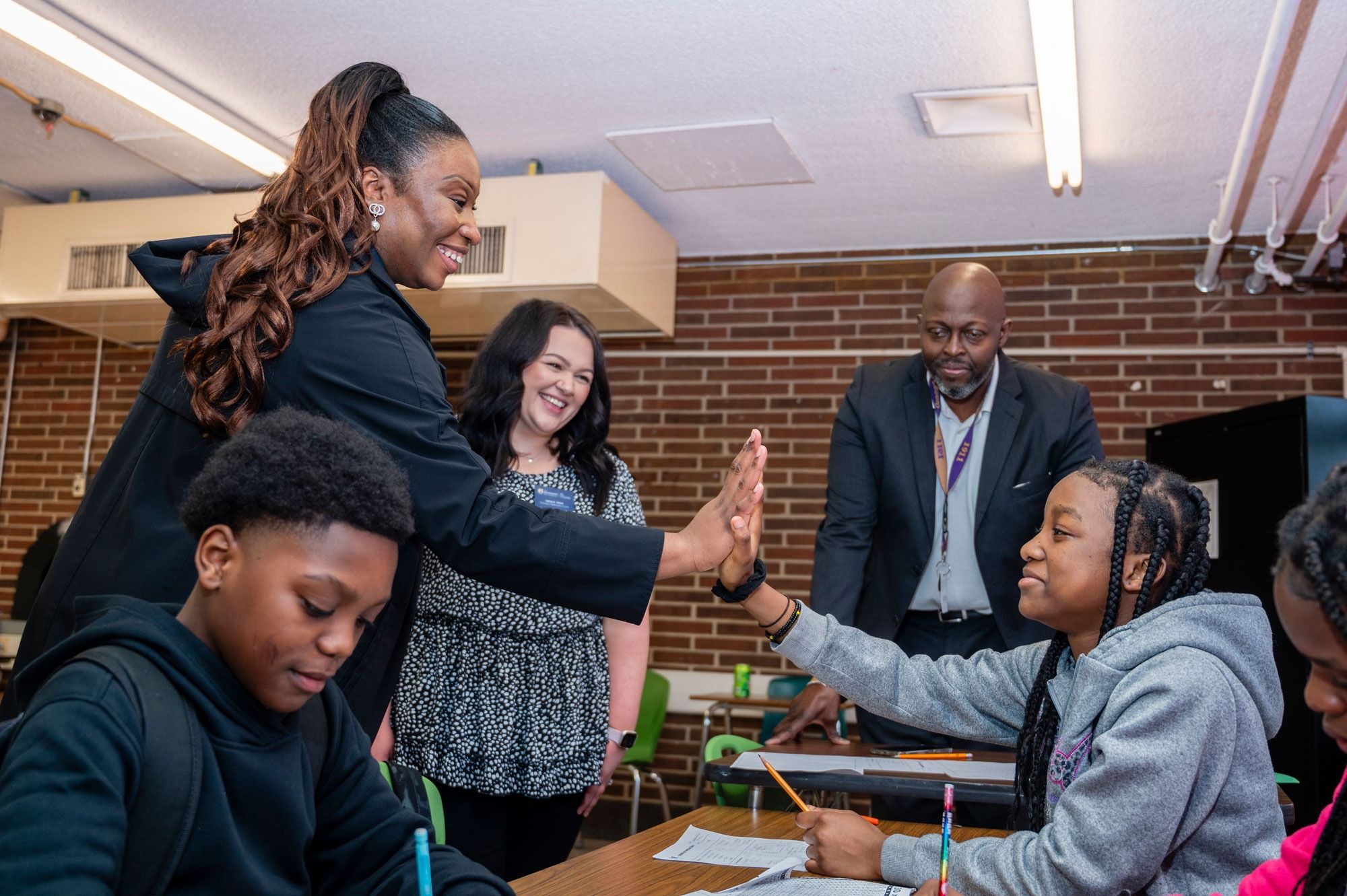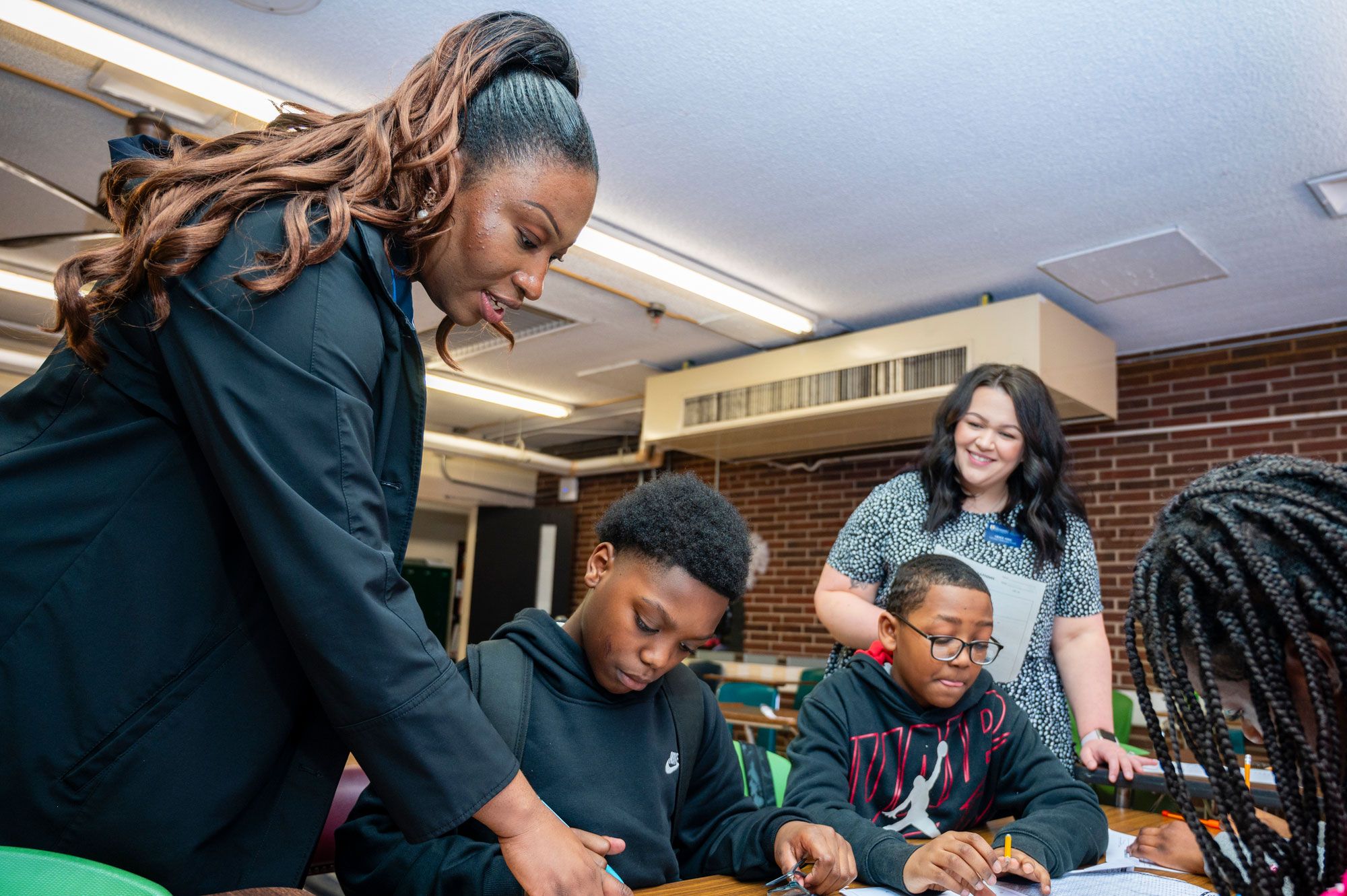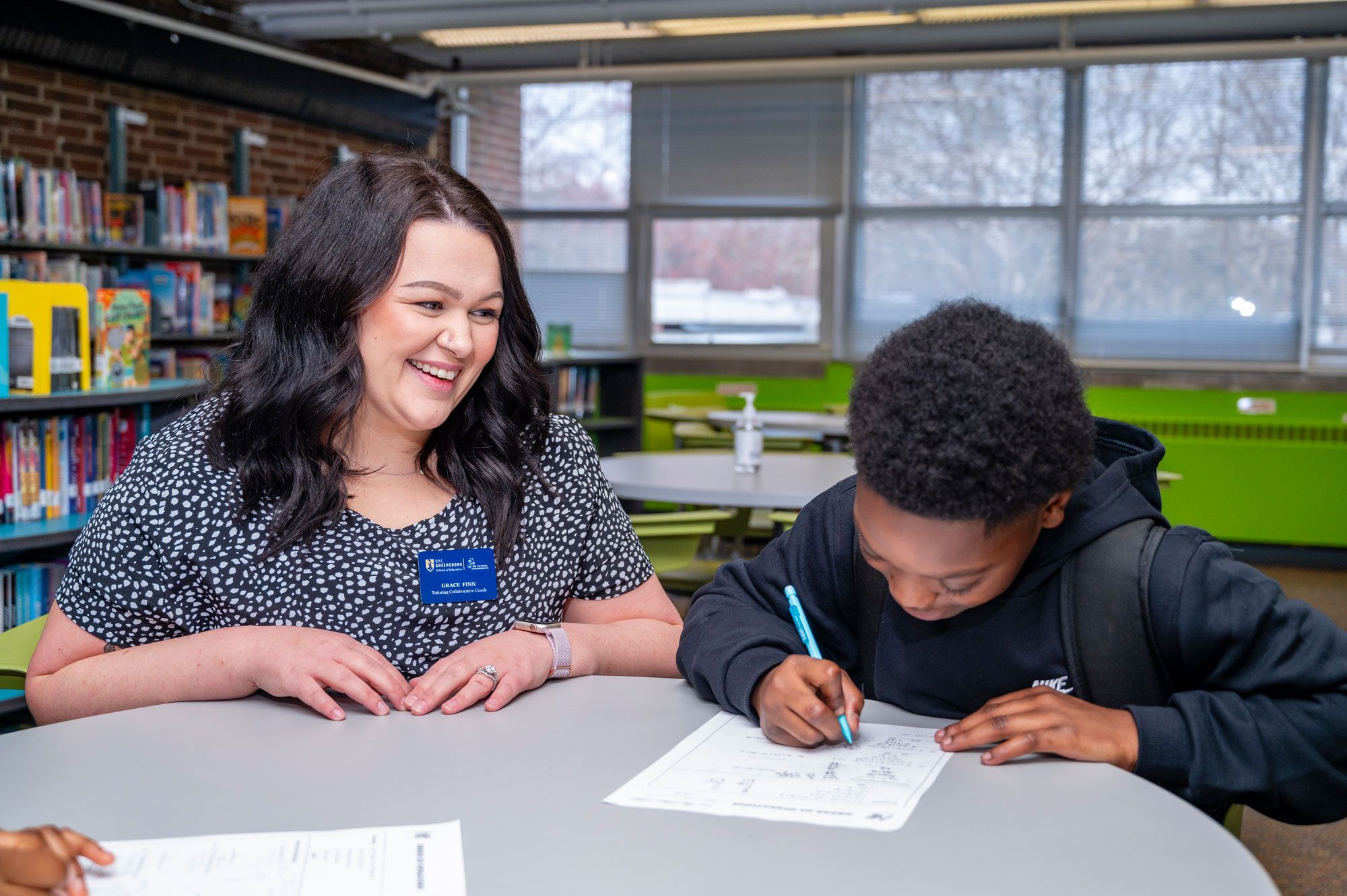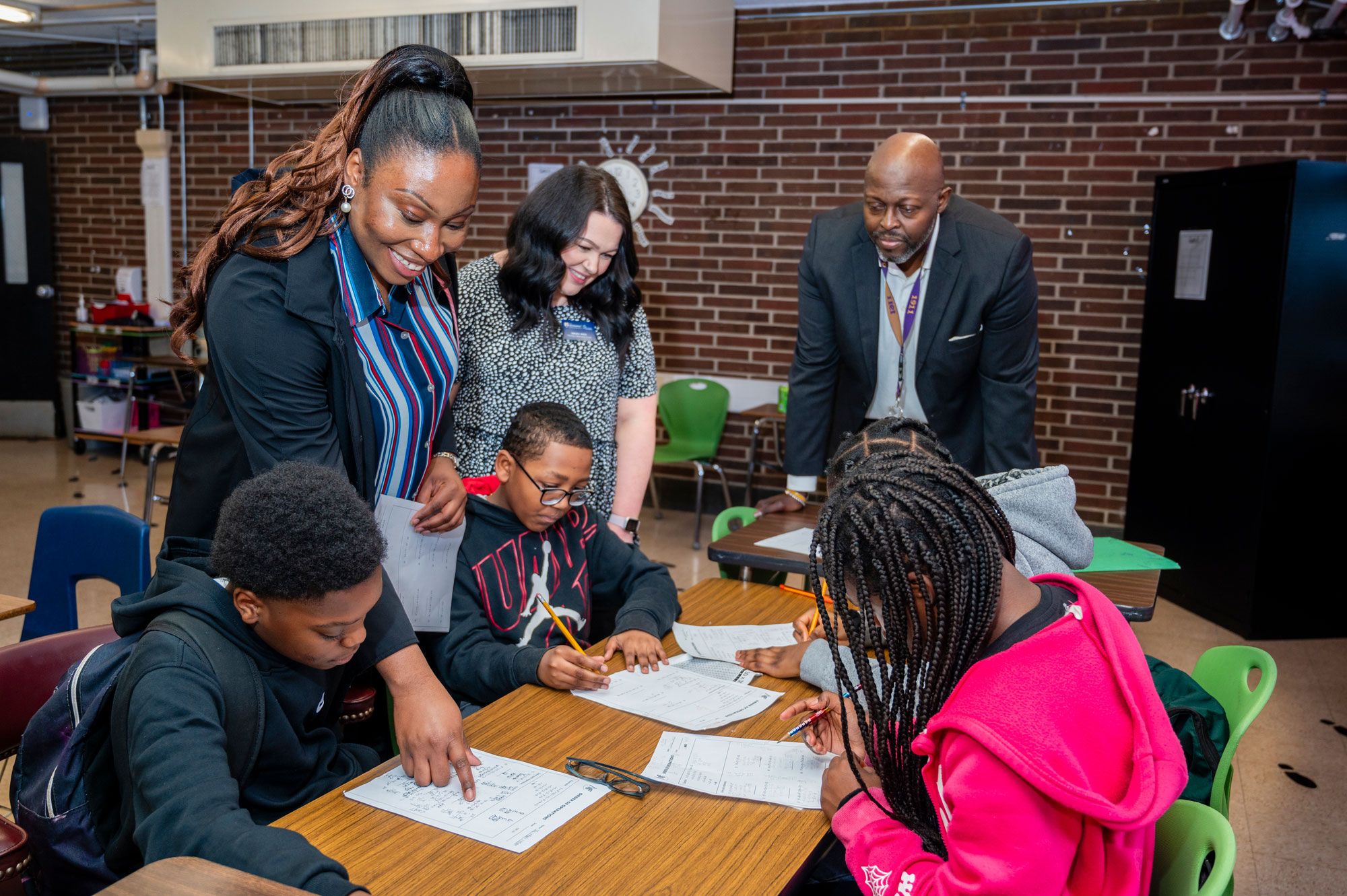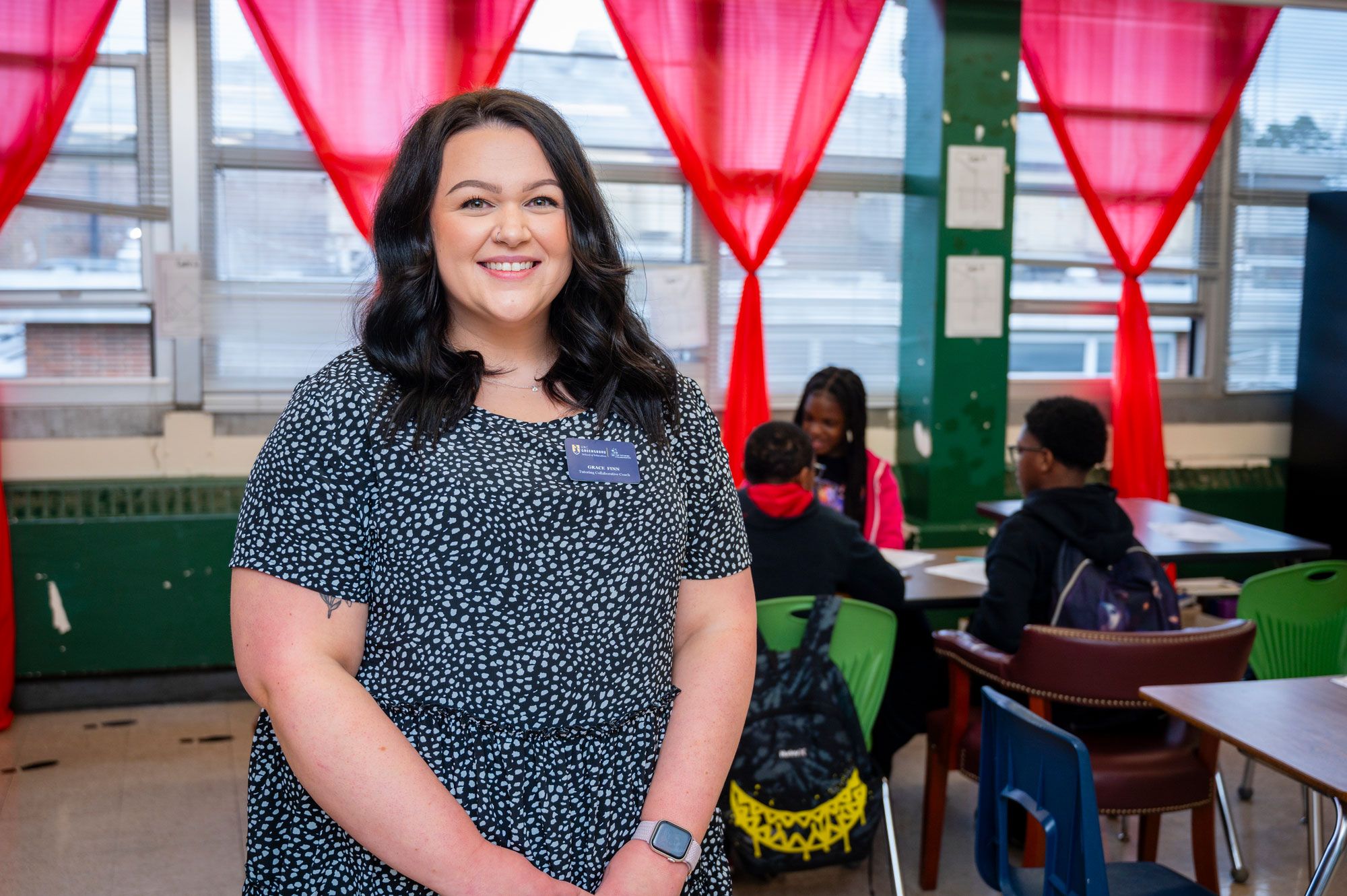Erasing COVID Learning Losses
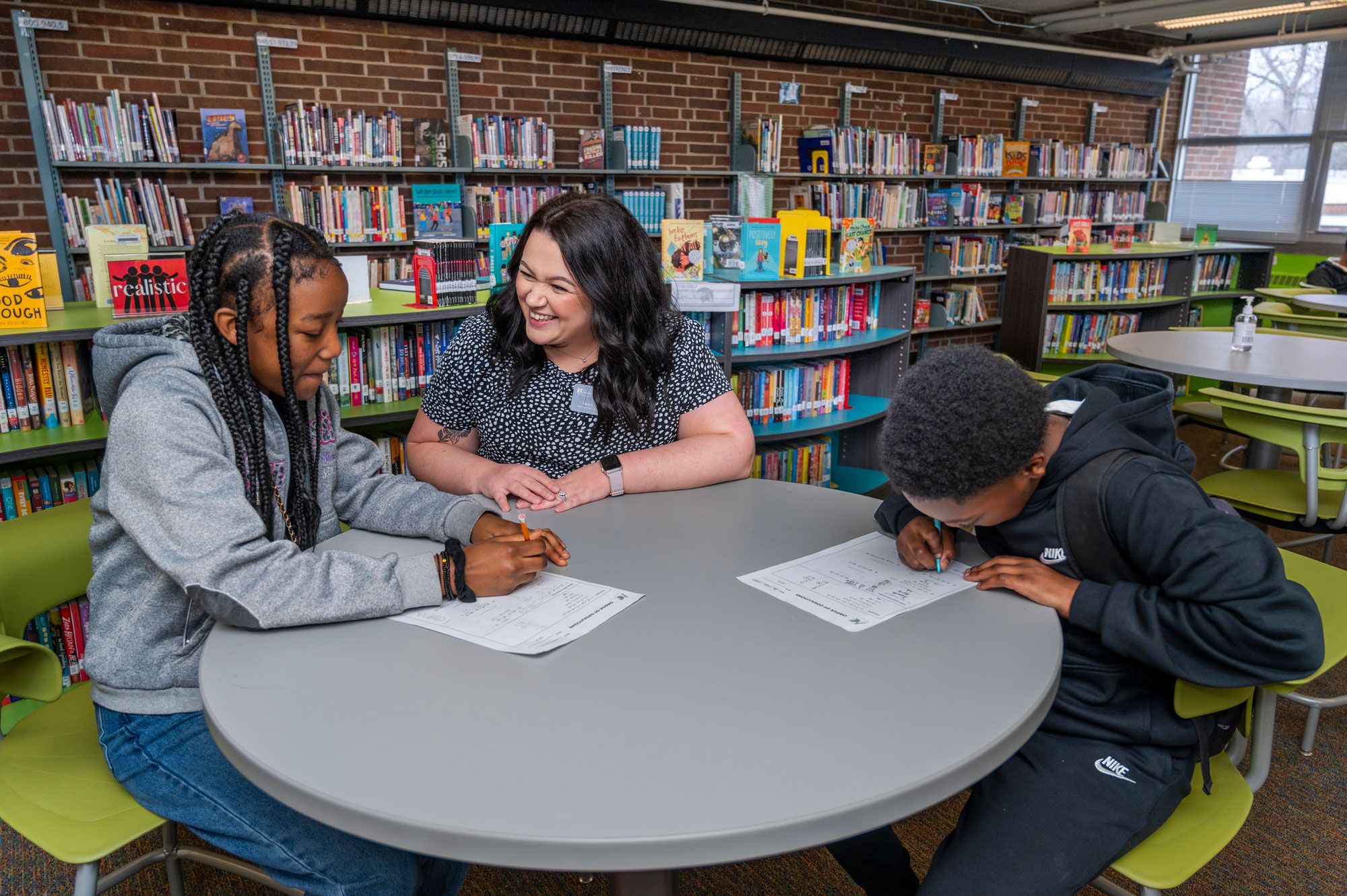
Erasing COVID Learning Losses
To address those losses, UNCG and Guilford County Schools have partnered to create The Tutoring Collaborative, bringing graduate students from across campus into K-12 as tutors. A $2 million grant supports the program, offering graduate students stipends for 20 hours of tutoring a week.
“It’s a crucial intervention, and we’re honored to have the district’s trust,” says Dr. Holt Wilson, co-director of UNCG’s Institute for Partnerships in Education, or IPiE, which secured the funding. Established in 2020, the institute facilitates long-term, community-based partnerships that bring solutions for pressing needs in schools.
The Tutoring Collaborative has proven to be agile and responsive to the needs of specific schools, and it has garnered national attention.
The Biden Administration named Guilford County as one of 15 school systems nationwide using funds from the American Rescue Plan to their best advantage.
“We started with three graduate students. Now we have between 34 and 40 graduate student tutors each term,” says program coordinator Megan Martin. “Over the past three years, we narrowed focus to best meet the needs of the district. We found the highest need focuses on grades 6 through 12 in math and science.”
The program uses high dosage tutoring, meaning students meet with their tutor for at least 30 minutes to an hour, depending on their age, at least three times a week. Research shows this tutoring model is most effective at raising student grades, IPiE co-director Dr. Faith Freeman says.
Guilford high school students have seen major gains in math in the aftermath. But successes don’t stop at test scores.
“The Tutoring Collaborative was designed to address learning loss from COVID, but students also lost human connection, social engagement, and experience building relationships during that time,” Martin says. “A lot of times we look to test scores to tell whether this program is successful, but Guilford County Schools and our program are also measuring success through attendance rates.”
“Kids are showing up to school more because they have a tutor there who cares for them three days a week.”
The Tutoring Collaborative is now scaling up and adapting its model to include hybrid in-person and online tutoring, with the goal of expanding to rural counties.
Social Innovation
It starts with a desire to solve acute community problems. It’s facilitated by critical partnerships. It grows out of creativity and cross-disciplinary savvy. As UNCG builds a culture of social innovation and entrepreneurship, NC communities reap the benefits.
